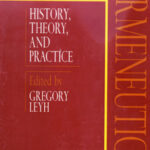**A Lawyer’s Primer on Feminist Theory and Tort**
Tort law, a pillar of our legal system, has long been criticized by feminist scholars for its inadequacy in addressing the unique harms suffered by women. Enter feminist tort theory, a compelling body of scholarship that seeks to rectify this imbalance, proposing transformative reforms to make the law more responsive to women’s needs.
**Traditional Tort Law’s Shortcomings**
Traditional tort law, rooted in a patriarchal society, often fails to recognize the distinct ways in which women are victimized. Consider the case of sexual harassment. The tort of intentional infliction of emotional distress (IIED), a common avenue for addressing such harms, requires a showing of “extreme and outrageous conduct.” Yet, many cases of sexual harassment fall short of this high threshold, leaving victims without legal recourse.
**Feminist Torts Scholarship: A Paradigm Shift**
Feminist tort scholars challenge this narrow interpretation of tort law, arguing that it overlooks the systemic and pervasive nature of gender-based discrimination. They propose a shift towards “relational” torts—torts that acknowledge the power dynamics and gendered context in which many harms occur.
**Reforming Tort Law: Practical Implications**
Feminist tort theory has inspired a range of proposals to reshape tort law. One such proposal is the expansion of tort liability to cover employers for sexual harassment perpetrated by their employees. Another is the creation of a new tort for “intimate partner violence,” recognizing the unique harms inflicted by this form of abuse.
These reforms would not only provide justice for victims but also send a clear message that gender-based violence will no longer be tolerated. By incorporating feminist perspectives into tort law, we can create a legal system that truly protects all individuals.
**Conclusion**
Feminist tort theory is not merely an academic exercise but a vital tool for transforming tort law into a more just and equitable system. As our understanding of gender and its impact on the law evolves, so must our legal framework. By embracing the principles of feminist tort scholarship, we can ensure that all victims of harm, regardless of their gender, have the legal protections they deserve.
A Lawyer’s Primer on Feminist Theory and Tort






The legal system has, historically, reflected the patriarchal values of society. As a result, the law has often failed to adequately protect women from violence and other forms of harm. Feminist theory offers a critique of the traditional legal system from a woman’s perspective. It challenges the androcentric assumptions that underlie the law and it advocates for a more just and equitable legal system for all.
Tort law is a body of law that governs civil wrongs, such as battery, negligence, and defamation. Feminist legal scholars have argued that tort law has been shaped by patriarchal values and that it fails to adequately address the harms that are unique to women. For example, the traditional definition of battery focuses on physical harm and does not take into account the psychological harm that can result from sexual violence. Feminist legal scholars have argued that the definition of battery should be expanded to include non-physical harm, such as emotional distress.
Battery
Battery is a civil wrong that occurs when one person intentionally or negligently causes physical harm to another person. The traditional definition of battery focuses on physical harm and does not take into account the psychological harm that can result from sexual violence. Feminist legal scholars have argued that the definition of battery should be expanded to include non-physical harm, such as emotional distress.
One of the most common defenses to battery is consent. However, feminist legal scholars have argued that the traditional definition of consent is too narrow and that it does not take into account the power dynamics that are often present in sexual relationships. They have argued that consent should be defined as a freely given, informed, and specific agreement to sexual activity.
Another common defense to battery is self-defense. Feminist legal scholars have argued that the traditional definition of self-defense is too narrow and that it does not take into account the unique risks of violence that women face. They have argued that self-defense should be defined as a reasonable response to a perceived threat of harm.
Finally, feminist legal scholars have argued that the damages that are awarded in battery cases are often inadequate. They have argued that damages should be awarded to compensate victims for all of the harms that they have suffered, including physical, emotional, and economic harm.
A Lawyer’s Primer on Feminist Theory and Tort
This article presents a lawyer’s introduction to feminist theory and its impact on tort law. Tort law is a crucial area of law that governs civil wrongs, such as negligence, assault, and defamation. Feminist scholars have been instrumental in highlighting the gendered nature of many traditional torts and advocating for reforms that better protect women.
Defining Feminist Theory
Feminist theory is a diverse body of thought that examines the experiences of women in society and challenges traditional assumptions about gender roles and power. Feminist scholars argue that gender is a fundamental aspect of social organization and that it shapes every aspect of our lives, including our legal system.
Feminist Critique of Tort Law
Feminist scholars have identified several ways in which tort law has been biased against women. For example, traditional torts often fail to recognize the unique harms that women face, such as sexual harassment and domestic violence. Additionally, tort law has traditionally relied on a framework that assumes men and women are equal, which can obscure the ways in which gender inequality creates disadvantages for women.
Feminist Tort Reforms
In response to these critiques, feminist scholars have proposed a number of reforms to tort law. These reforms have focused on recognizing the gendered nature of torts, creating new causes of action to address harms that disproportionately affect women, and challenging the traditional framework of tort law to make it more inclusive.
Conclusion
Feminist theory has had a significant impact on the development of tort law, and has led to a number of important reforms that have made tort law more responsive to the needs of women. These reforms have made it possible for women to seek redress for harms that were previously unrecognized and have helped to create a more just and equitable legal system.